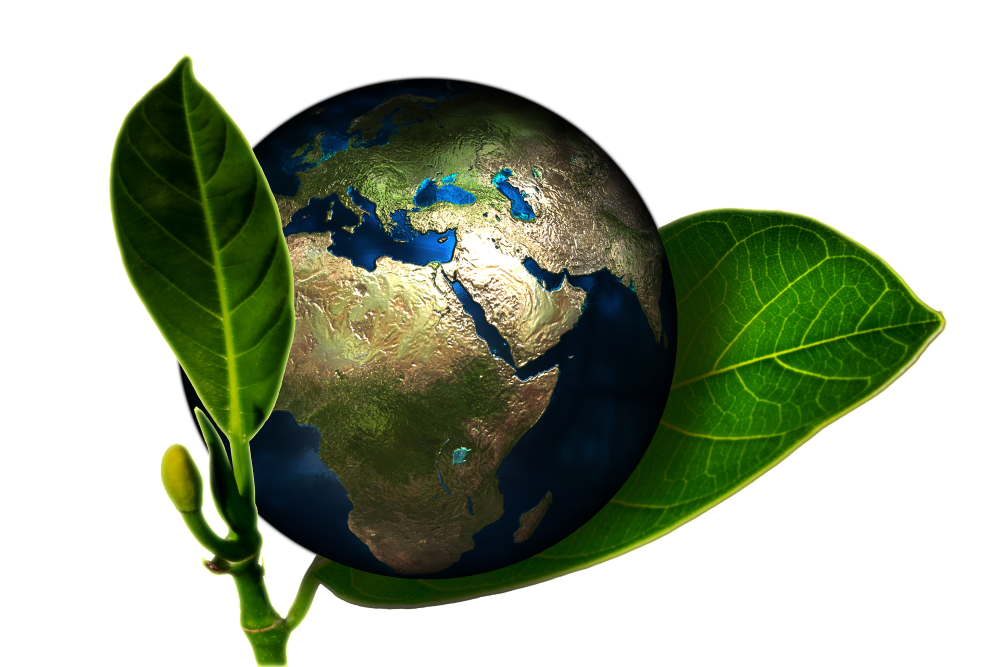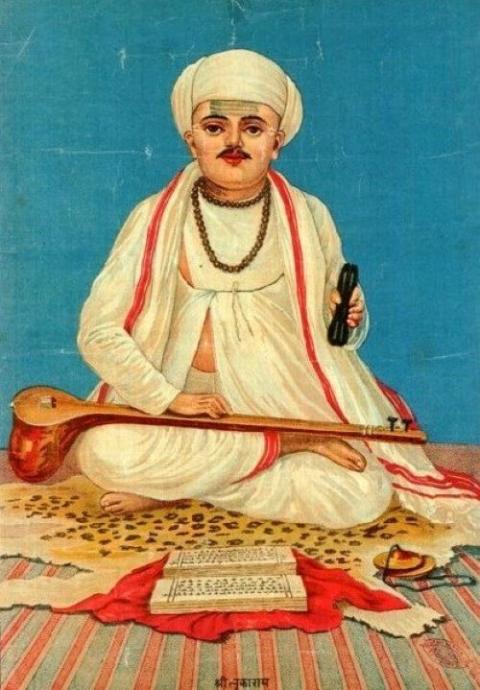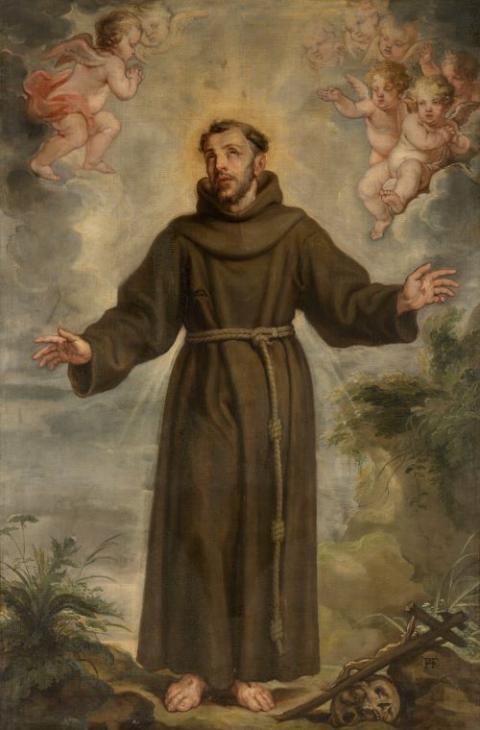
(Pixabay/Gerd Altmann)
It is Sunday morning and I am sitting with my breviary, as has been my religious prayer practice since I joined the convent. I am chanting Daniel 3:74-77. "The three sang with one voice in the heart of the fire":
O let the earth bless the Lord; to God be highest glory and praise forever.
And you mountains and hills; all plants of the earth, fountains and springs, praise the Lord … you rivers and seas, creatures of the sea, every bird in the sky, wild beast and tame, praise the Lord …
While chanting on the deeper level one gets the sense of the cosmic oneness in the Scriptures. This song is so all-encompassing and cosmic, that these few lines are a jubilant affirmation, showing the redemption through the powers of creation.
Reflecting upon these chants, I realized that the praises sprung forth out of a crisis situation, created by King Nebuchadnezzar's disobedience to God. God's mercies were revealed through the ones who were obediently disobedient to the powers that be.
From time to time, God raises prophets of the Earth.
Since my teenage years, the lyrics of the poem Vrukshavalli Amha Soyari "The trees and creepers are our relatives" have been deeply carved on my heart. This poem is by a 16th century Hindu poet and saint Tukaram, from Maharashtra, India, known popularly for his devotional poetry.

St. Tukaram, a 16th-century Hindu poet from Maharashtra, India, is known for his devotional poetry. Wikimedia Commons/Public Domain/ Ravi Varma Press/Anant Shivaji Desai)
A free translation of this poem would be: "The birds, trees, animals are our relatives. They reveal to us God's presence. The birds give their melodious rhythmic love through their chirpings."
Later in his poems, Tukaram describes his philosophy of religion:
God has no form, nor any name, nor any place where God can be seen; but wherever one goes, sees God everywhere and every situation." He further suggests that "whoever utters the name of God while walking, is blessed in one's body and the body itself becomes the place of pilgrimage.
Often during Eucharistic celebrations, we sing the song of St. Francis of Assisi: "Make me a channel of your peace…" and his "Canticle of the Creatures":
Be praised, my Lord, for all your creation, our brother Sun, our brothers wind, fire and air, our Sister Water, Earth, our Mother, who nourishes us and sustains us, bringing forth fruits and vegetables and flowers. Be praised, my Lord, for our sister Death …
I think both 12th-century St. Francis of Assisi and 16th-century St. Tukaram of Maharashtra were successful reformists and social activists. With their inner transformation they opened the avenues for cosmic evolution on the spiritual front. This might have been seen as a threat to the kingly status quo of the rulers of those days.
Both take us beyond our concepts of certainty to the Buddhist concept of anicca, (impermanence), reminding us that certainty corrupts our ability to "let go and let God." Certainty of wealth and power makes it harder to see the providential care of God.
Certainty is an illness creating hatred and greed. Benedictine Sr. Joan Chittister once wrote, "Francis of Assisi … warned of the greed and corruption and destitution that would come when the world was run more on profit for the rich than it was on a prophetic commitment to the poor."
Francis and Tukaram were pilgrim apostles for an eco-cosmic religion. These eco-cosmic saints reveal to us our cosmic oneness embedded in creation's narratives, bringing us closer to the words of Indigenous ancestors. One perspective is attributed to to Chief Seattle in a letter he is said to have written to U.S. President Franklin Pierce in 1854:
Every part of this earth is sacred to my people. Every shining pine needle, every sandy shore, every mist in the dark woods, every clearing, and humming insect is holy in the memory and experience of my people. The sap that courses through the trees carries the memories of the red people. Our dead never forget this beautiful earth, for it is the mother of the red people. We are part of the earth and it is part of us. … The air is precious to my people, for all things share the same breath – the beast, the tree, the woman and the man they all share the same breath … The wind that gave our grandparents their first breath also receives their last sighs. And the wind must also give our children the spirit of life.
Creation is a pathway to God. These eco-cosmic saints believed that all the elements of creation have significance and value. Every being on this Mother Earth is to be treated with reverence
Advertisement
Closer to home, Thomas Berry, one of the 20th century's most prescient and profound thinkers, sought a broader perspective on humanity's relationship to the earth in order to respond to the ecological and social challenges of our times. In his 1999 book The Great Work, Berry wrote that we must reinvent the human:
Our sense of who we are and what our role is must begin where the universe begins … the universe is composed of subjects to be communed with, not objects to be exploited. everything has its own voice…and they constitute a community of existence that is profoundly related.
All of us are in danger and insecure in this era of cataclysms — summer heat waves, storms and cyclones, and wars — wreaking havoc with destroyed homes and loss of human life. When corporations are competing to make the world bend at their feet, we need saints with cosmic vision. We can learn from Francis, through his love of nature and animals. Just as by taming the wolf "Gubbio," Francis made the town safe, we need Francis more than ever, to tame the two-legged wolves — the warmongers and corporate executives — who are threats to life everywhere.
Both saints reveal to us a cosmic religion of respecting God's creatures, creation and the environment in which we live. Pope Francis, talking to Brazilian bishops during World Youth Day 2013, called for "respect and protection of the entire creation which God has entrusted to us, not to be indiscriminately exploited but rather made into a whole."
For St. Francis and Tukaram, the evolution of Oneness began in their consciences. Is it time for an evolutionary leap, to engage in practices that can actively and even exponentially increase the speed of our own conscience evolution?
The two saints show us the primacy of experience of cosmic grandeur over structures. Let us unite with these cosmic saints to see God in every being and belong to one cosmic family. All eco-cosmic saints like Tukaram, Francis, Chief Seattle, Hildegard of Bingen and Venerable Black Elk awaken us to the reality of the Cosmic Oneness of all.
As we mark Earth Day, we should honor these eco-cosmic saints by implementing Catholic social teachings of the common good, by safeguarding Mother Earth as our common home and prioritizing a preferential option for the poor.








